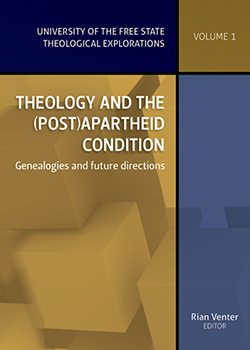Latest News Archive
Please select Category, Year, and then Month to display items
25 March 2024
|
Story Anthony Mthembu
|
Photo Lutendo Mabata
 Prof Nompumelelo Zondi, the newly appointed Vice-Dean: Research and Postgraduate Studies in the Faculty of The Humanities at the University of the Free State (UFS).
Prof Nompumelelo Zondi, the newly appointed Vice-Dean: Research and Postgraduate Studies in the Faculty of The Humanities at the University of the Free State (UFS).
Prof Nompumelelo Zondi has been appointed as Vice-Dean: Research and Postgraduate Studies in the Faculty of The Humanities at the University of the Free State (UFS). Prof Zondi assumed this new role on 1 March 2024 after serving as the Head of Department for African Languages at the University of Pretoria for seven years. “I consider this appointment as an opportunity of growth and learning more about higher education and the Faculty of The Humanities at large,” she said.
Prof Zondi indicates that part of her role is to spearhead the UFS Vision130 within the Faculty of The Humanities, and to ensure that the faculty assists the institution in becoming research-led, student-centred, and globally impactful.
Motivation for assuming this role
One of the primary reasons that led her to consider this role is sharing the knowledge she acquired as part of the Fulbright South African Research Scholar Programme. As a result of that experience and exposure, which went beyond the Ohio State University, she felt it befitting to implement some of the insights she acquired on a bigger scale. Therefore, even though she was impactful in her previous role, Prof Zondi believes that this is an exceptional and more desirable platform to do so. “I feel that I will have easier access to departments within the faculty, while also encouraging and supporting interdepartmental and faculty collaborations,” she explained.
A significant component of Vision 130
He believes that the elements that make up Vision 130 are interrelated. While she considers research central to Vision 130 – as she begins her journey at the UFS, she feels students deserve to be nurtured to further contribute to the university’s impactful research. Thus, student-centredness is the way to go. “I believe that students must be major role players in this Vision130; we must include them in the interactions and discussions that are part of the university’s strategic plan as well as in decision-making processes,” she said. As such, according to Prof Zondi, the more the faculty and the institution care for the students and involve them in Vision130 and in collaborations, the more research outputs the university will achieve.
UFS research project aims to stimulate reflection on theological studies
2017-06-20

The first book in the ‘UFS Theological
Exploration’ academic series, called Theology
and the Post(Apartheid) Condition, has just
been released.
Photo: Supplied
The first study book with the title Theology and the Post(Apartheid) Condition, which is part of a new academic series by the Faculty of Theology and Religion at the University of the Free State, is now available. Volume 1, compiled by Professor Rian Venter as editor, is the first book in the ‘UFS Theological Exploration’ academic series, which the faculty plans to release.
Transformation
Professor Venter says the transformation of processes and practices in communicating and creating knowledge has become an urgent task for public universities in a democratic South Africa. Much reflection has already gone into the methods and scope of transformation in higher education.
Although the faculty has done work on the implications of this for theology, there is one area of investigation that has not received much attention. It concerns the role of theological disciplines such as Old and New Testament, Missiology and Systematic Theology and Practical Theology, and specifically the relationship between academic disciplines and societal growth. The book focuses on these challenges and contains the intellectual undertakings of the contributors who are all lecturers, research fellows and post-graduate students linked to the faculty.
The questions
The key questions addressed are: what are the contours of the (post)apartheid condition and what are the implications for responsible discipline practices in theology. Professor Venter says the chapters in the book are logically arranged and moves from wider to more specific concerns. The first three chapters suggest broad perspectives on the challenges for theology in higher education, chart the changes, and make some suggestions for the future.
A dynamic field of study
The book states that theology has already experienced profound and radical changes over the past decade, which is known to us. All the chapters demonstrate these fundamental shifts, which have taken place in all theological sub-disciplines. Professor Venter says the contributions in the book illustrate that theology is a dynamic field of study, and is pursued with enthusiasm and commitment. Not all disciplines in theology are investigated for the book. However, the studies reflect the interests of the theologians in the Faculty of Theology at the UFS. Professor Venter hopes that the volume might stimulate further reflection of a similar nature by other theologians.
New insights
Through the ‘UFS Theological Exploration’ research series, the faculty hopes to stimulate new insights and new developments in academic progress and overall human growth. Series editor Professor Francois Tolmie says it is a fact that strong university research is necessary to achieve academic progress and advance human prospering. He says the faculty's research series will make a valuable contribution to these causes. Professor Tolmie says the ‘UFS Theological Explorations’ contains research of the highest academic standard which has been peer-reviewed to make significant educational contributions to core theological issues in South Africa and overseas.